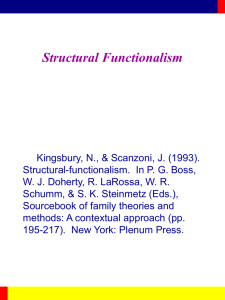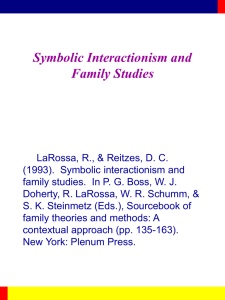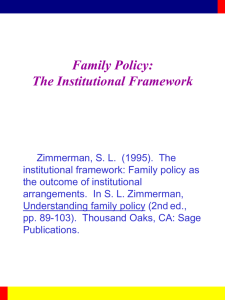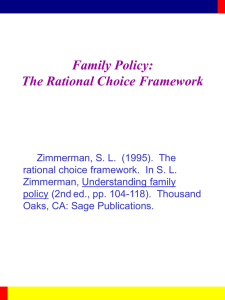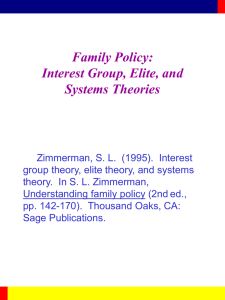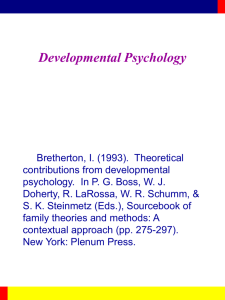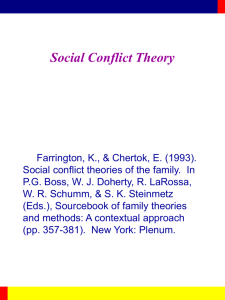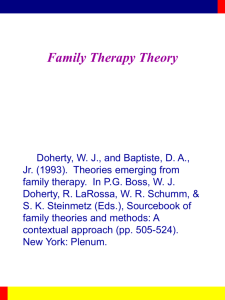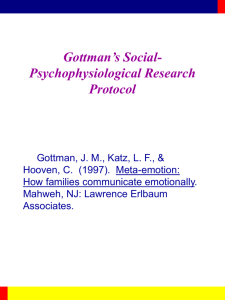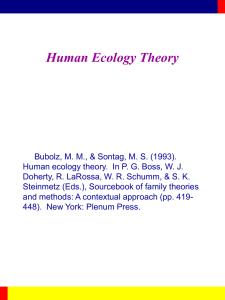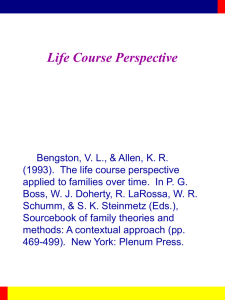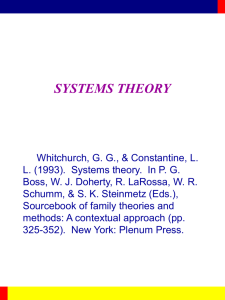Race and Ethnicity
advertisement
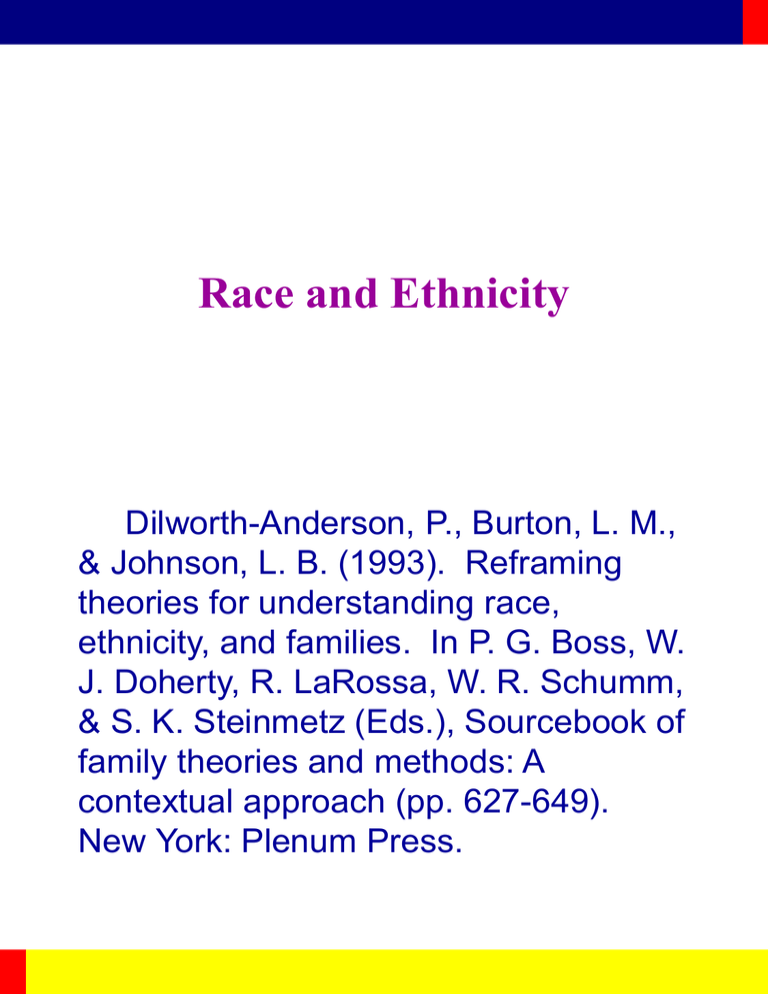
Race and Ethnicity Dilworth-Anderson, P., Burton, L. M., & Johnson, L. B. (1993). Reframing theories for understanding race, ethnicity, and families. In P. G. Boss, W. J. Doherty, R. LaRossa, W. R. Schumm, & S. K. Steinmetz (Eds.), Sourcebook of family theories and methods: A contextual approach (pp. 627-649). New York: Plenum Press. Definitions: Race: Cultural construction of identity based on social description. From this perspective, race has a cultural reality. Ethnicity: An experientially based identity that is part of an ongoing process. It is part of the social self which contributes to a personal sense of peoplehood as well as a sense of shared identity with others form the same group. Dr. Ronald J. Werner-Wilson Definitions (cont.): Minority group: Any collective of people (e.g., women, Native- Americans, African-Americans, HispanicAmericans) that is assigned a low social position. This low social position reflects oppression, suppression, and discrimination that is experienced in almost all aspects of life. Culture: a subjective and objective expression of self which represents the encompassing aspects of a person’s life; it includes racial and ethnic rituals symbols language general patterns of behavior. Dr. Ronald J. Werner-Wilson Impact of Assumptions, Values, and Ethnic Reality From age four, European-American children hold negative attitudes toward other groups (Aboud, 1987) which are reinforced at all levels (e.g., from parents, media, teachers) (Phinney & Rotheram, 1987). Values and scientific truths are confused when scholars uncritically use their personal cultural frameworks to define and report on a culture other than their own. Dr. Ronald J. Werner-Wilson Three Approaches to Value Intrusion in Social Science: Value rejection: suggest that social scientists can be objective so values do not influence theory and research. Value separation: approach social science as if it is possible to separate values from research and theory. Value espousal: scholars should clearly articulate their values so that readers may understand the complete nature of the research. Dr. Ronald J. Werner-Wilson Example of Research Which Reflects Bias: Moynihan (1965), a European-American: Described deterioration of African-American families. Suggested that social policies should be developed which would change their “inferior” values and structure. Hill (1972), an African-American: Observed the resilience of African-American families. Recommended social policies which would build on these strengths. Dr. Ronald J. Werner-Wilson Dimensions Which Influence Thinking About Diversity Social climate and social change influence theory (e.g., genetic pathology versus cultural relativity), research, and practice. Presence of minorities in studies of the family and method of group comparison. Definition of the family (e.g., nuclear versus extended; blood relationship versus other networks known as “fictive kin”). Dr. Ronald J. Werner-Wilson Creating New Ways of Thinking Adopt a multi-disciplinary perspective in order to avoid discipline-bound truths. Identify and use culturally relevant concepts: examine various methodologies to understand minority families; examine culture and experiences expressed through art, music, dance, literature, and folktales. Dr. Ronald J. Werner-Wilson Cultural Relevance in Existing Theory The Life Course Perspective Strengths for studying diversity: It is based on an interdisciplinary way of thinking. It is flexible and dynamic, focusing on the interlocking nature of individual trajectories, re: temporal motion culture social change Modified perspective: “Kin-scripts framework” reviews temporal and interdependent dimensions of role transitions transmission of family norms process of negotiation and reciprocity Dr. Ronald J. Werner-Wilson Cultural Relevance in Existing Theory (cont.) Family Stress Theory Limited attempts to make this approach culturally relevant. Suggestions to enhance cultural relevance: Recognize that minority families emphasize survival over adaptation; adaptation is a fundamental theme in family stress theory. Survival suggests an ongoing struggle to maintain psychosocial balance without loss of identity. Dr. Ronald J. Werner-Wilson Cultural Relevance in Existing Theory (cont.) Feminist Ideology: Some scholars (e.g., Collins, 1990; Giddings, 1984; La Rue, 1970) dispute a central feminist assumption: they object to the tenet that women are oppressed. Rather, these scholars suggest that opportunities for women are restricted, suggesting that they experience suppression. Distinction between terms: Oppression refers to almost total restriction from access to benefits, rights, and privileges in society. Suppression refers to a lesser degree of restriction. Dr. Ronald J. Werner-Wilson
